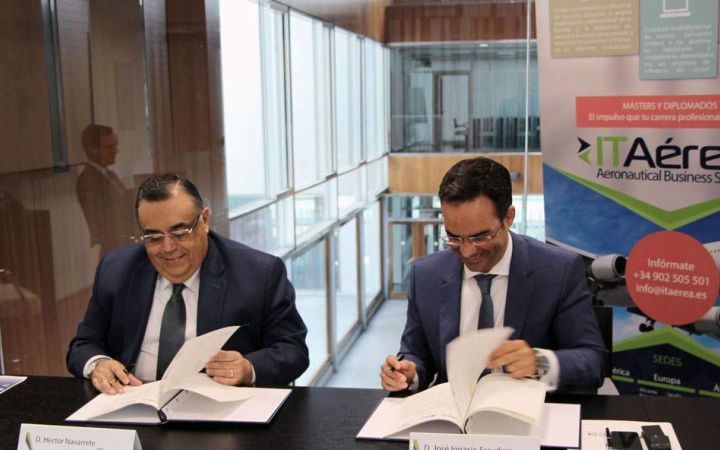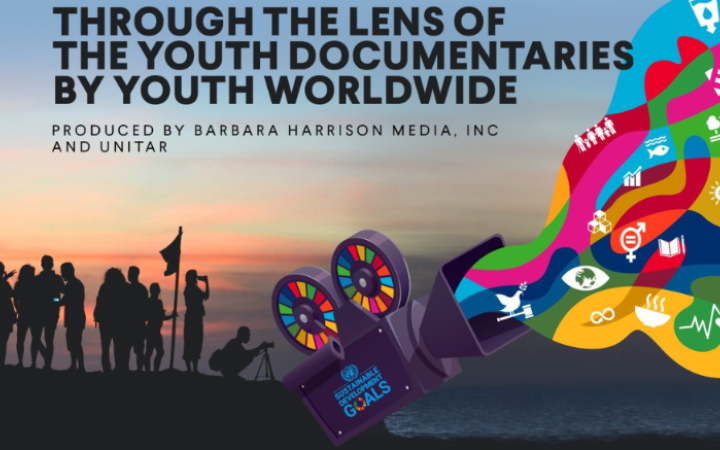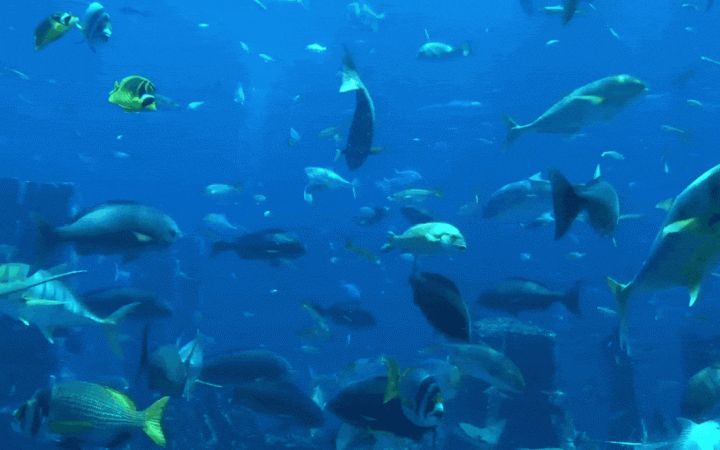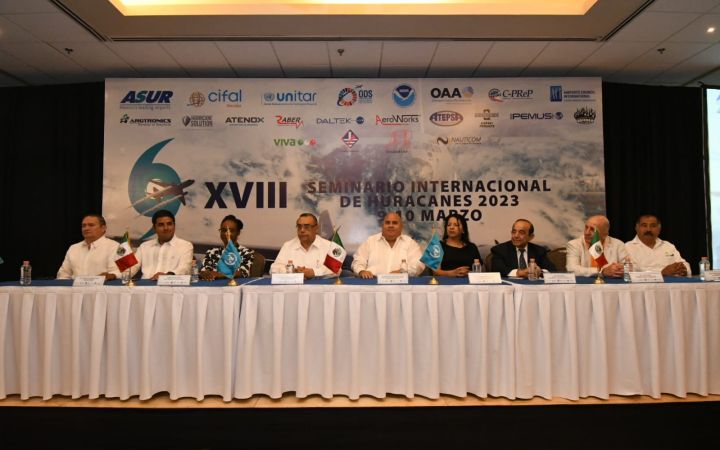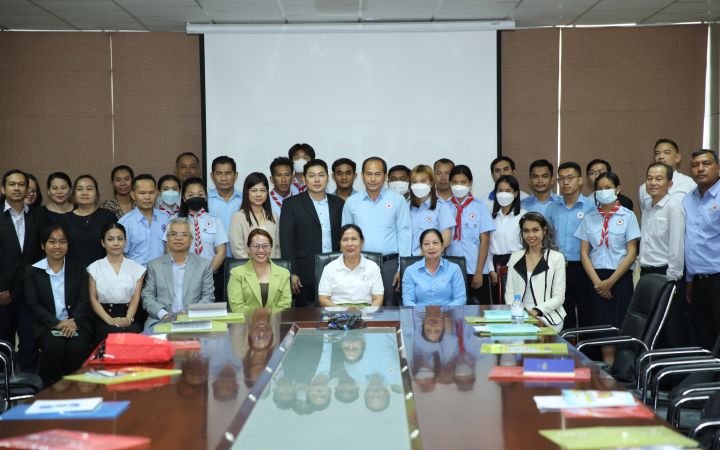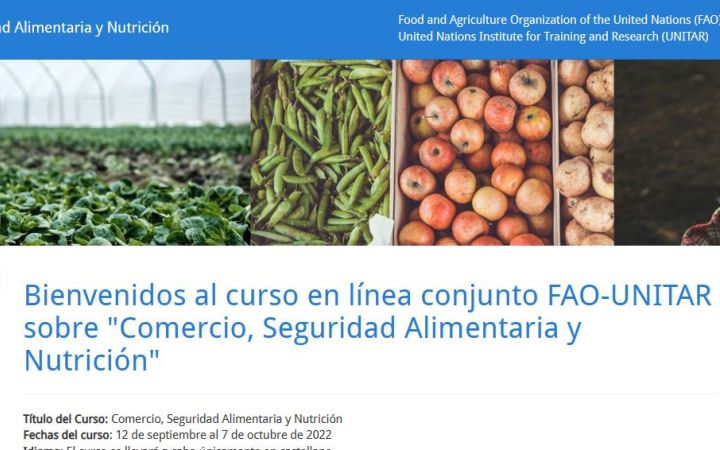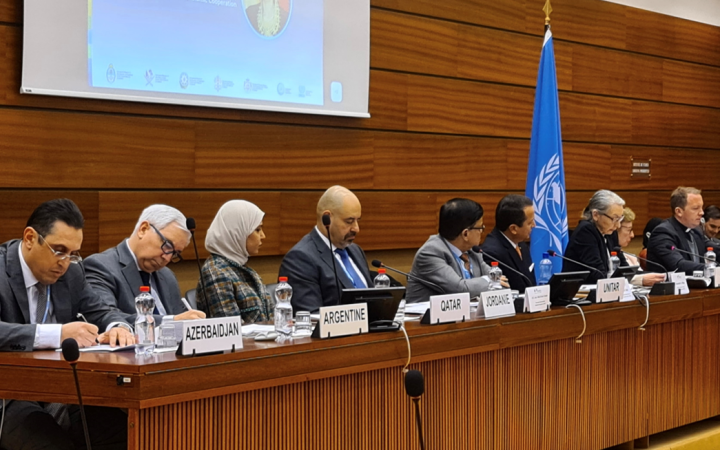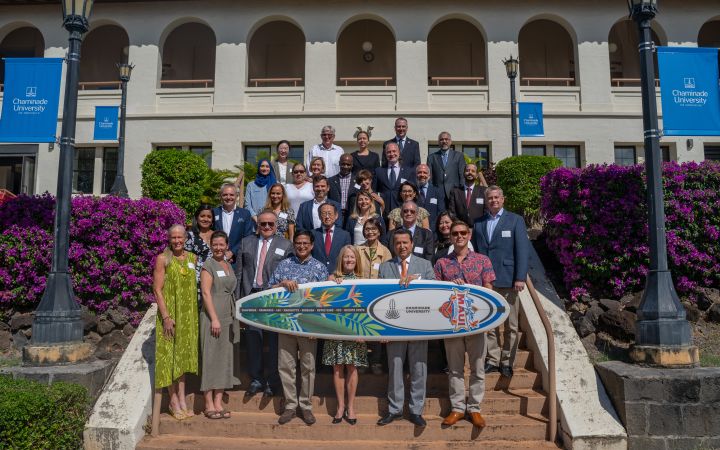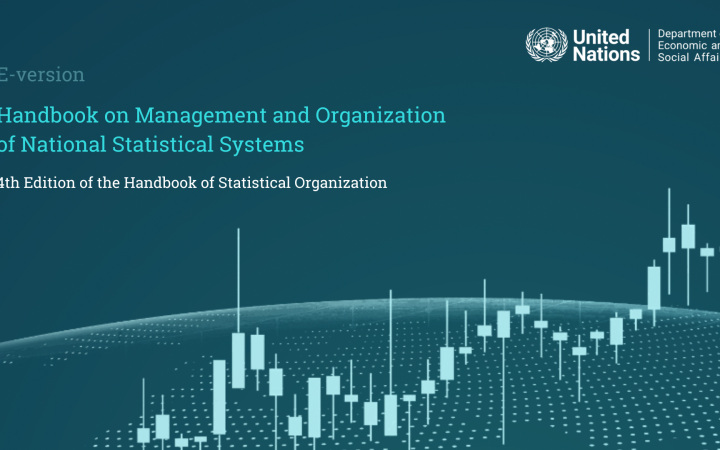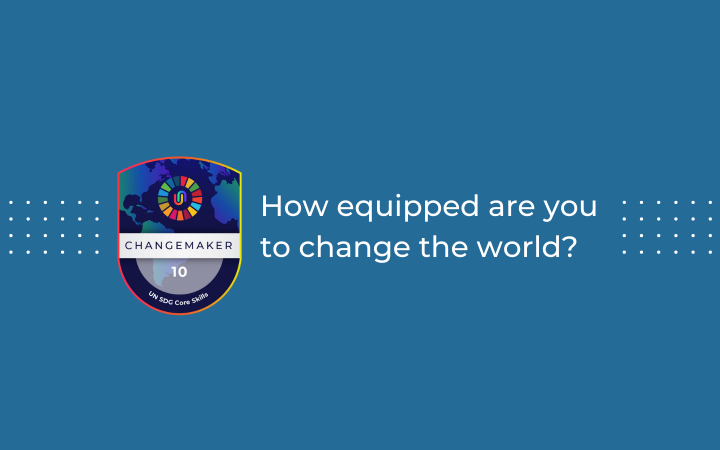Displaying 21 - 30 of 165
31 March 2023, Merida, Mexico - The Executive Director of CIFAL Merida in Mexico, Héctor Navarrete Muñoz, and the Director of the ITAérea Business School, Mr José Ignacio Escudero, sealed the extension for another 4 years of the partnership that has united these institutions since 2017.
30 March 2023, Geneva, Switzerland - To give the youth the voice they deserve, The United Nations Institute for Training and Research is partnering with Barbara Harrison Media and Kids Speak Out to launch the project: Through the Lens of the Youth Documentaries by Youth Worldwide. Allowing youth to express the importance of Sustainable Development Goals through video creation.
Module 4 "Measuring the state of the oceans" of the UNEP-UNSIAP-UNITAR Massive Open Online Course is offered as a stand-alone module with a certificate of completion. The module explains the importance of measuring the state of oceans and describes various challenges that countries and the international community are facing in monitoring the state of oceans overall. It also discusses international plans for sustainable development that cover oceans and incorporate specific action plans in monitoring their state. It provides an overview of SDG 14 with detailed methodologies for calculating four indicators that are under UNEP custodianship, namely SDG indicator 14.1.1a, SDG indicator 14.1.1b, SDG indicator 14.2.1, and SDG Indicator 14.5.1. Additionally, the module briefly describes two non-UNEP indicators that are related to oceans – SDG indicator 14.3.1 and 14.4.1.
09 March 2023, Merida, Mexico – Together with airport executives, and civil and aeronautical authorities, CIFAL Merida has met in the city of Merida Yucatan, to review with specialists from the National Hurricane Centre, and renowned meteorologists, the processes of preparation of airports for their immediate reopening in case of being impacted by a tropical cyclone.
7 March 2023, Phnom Penh, Cambodia - On March 2 and 3, 2023, the Autosobriety Training Programme to Prevent Drink Driving kicked off at Phnom Penh International University and brought together 22 trainers from local high schools, public and private universities
27 February 2023, Geneva, Switzerland - The Spanish edition of the FAO and UNITAR joint e-Learning Course on “Trade, Food Security, and Nutrition” for Latin American policymakers launched in September 2022 has been completed.
10 February 2023, Geneva, Switzerland- The latest annual edition of the Geneva Interfaith Dialogue, hosted by UNITAR in collaboration with the Permanent Mission of the Hashemite Kingdom of Jordan to the United Nations in Geneva, took place in early February. The event convened a diverse panel of Ambassadors, high-level representatives of the world's major faiths, and the International Geneva community to engage on the links between faith, politics, and society.
10 January 2023, Geneva, Switzerland - The XIX Annual Steering Committee Meeting of the CIFAL Global Network was successfully hosted by CIFAL Honolulu and Chaminade University. In 2022 the CIFAL Global Network reached over ninety-thousand beneficiaries through over 500 events.
Over the past months, UNITAR has been supporting UN Statistics Division (UNSD) in developing an e-version of the Handbook on Management and Organization of National Statistical Systems. It is launched now and available on UNSD's website.
UN SDG:Learn is featuring a new tool “Changemaker Scan” developed by Ubiquity University. It is a self-appraisal for you to build your changemaker profile in 8 SDG cross-cutting competencies defined by UNESCO! Go to your dashboard to try it now or register on the platform here: www.unsdglearn.org/register


